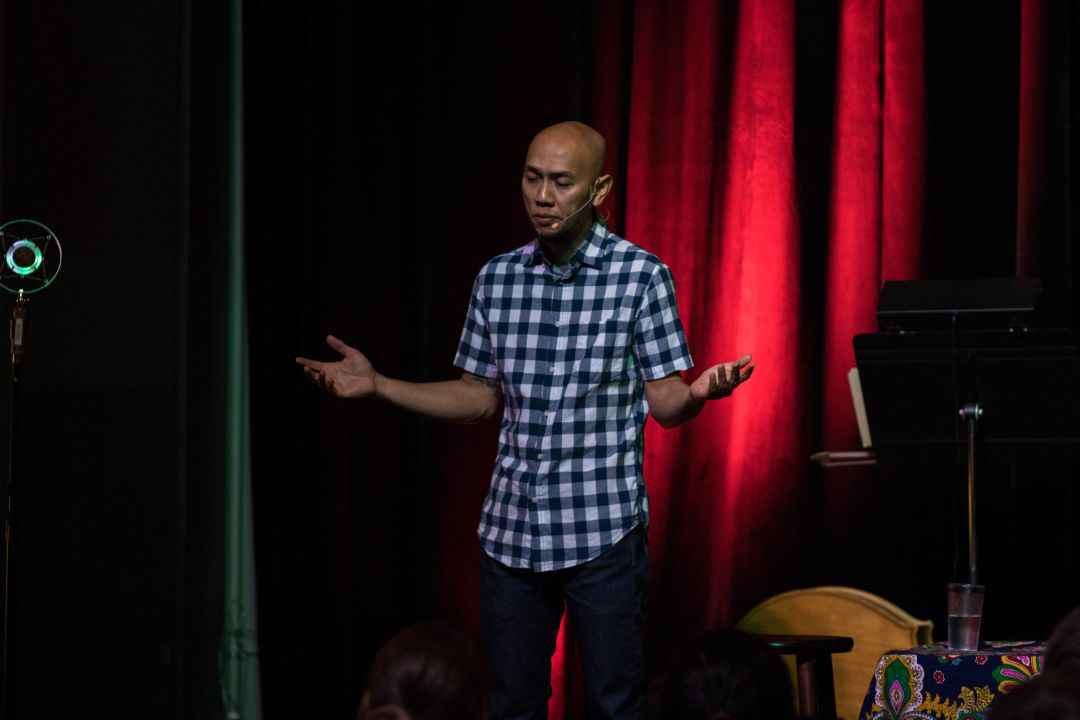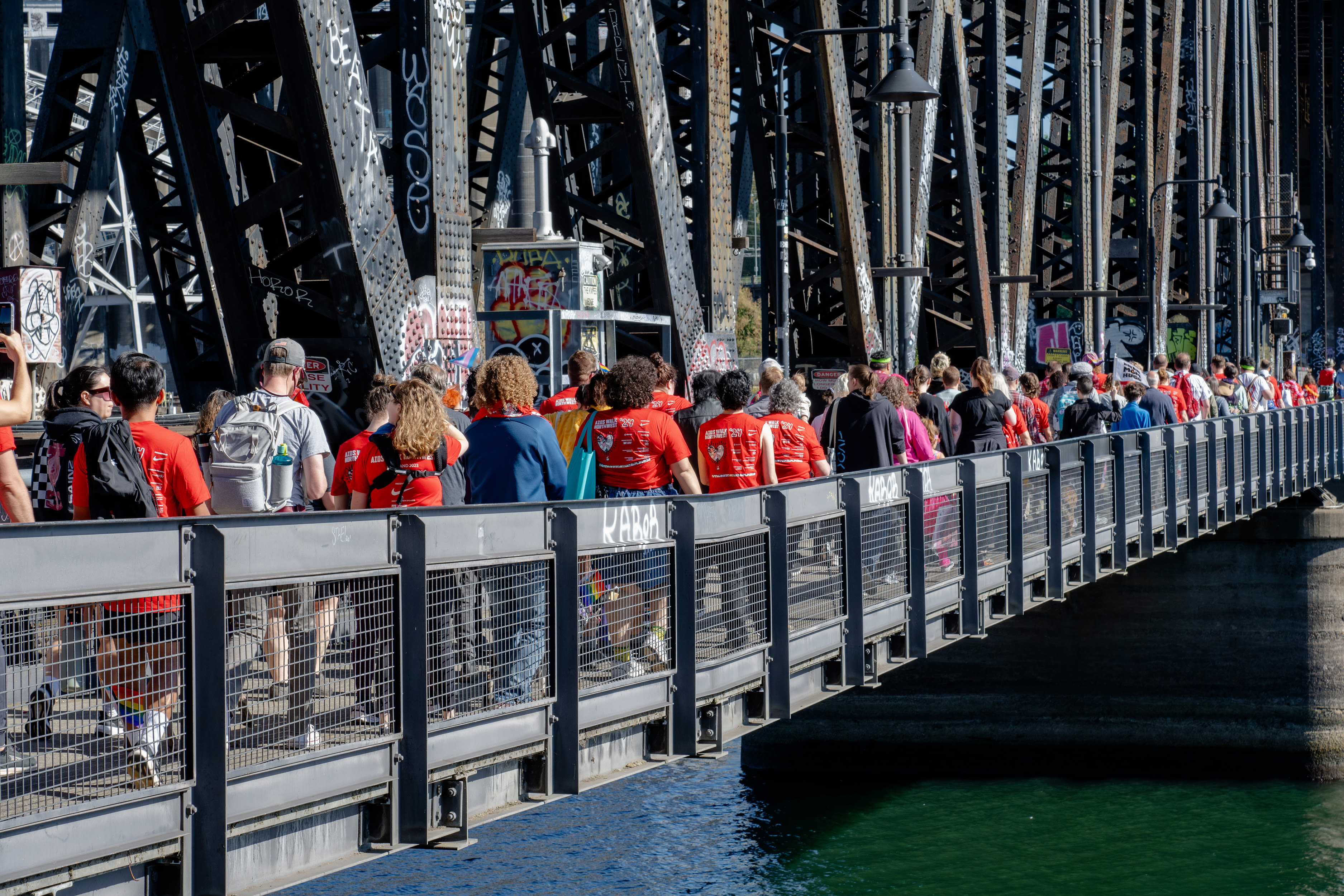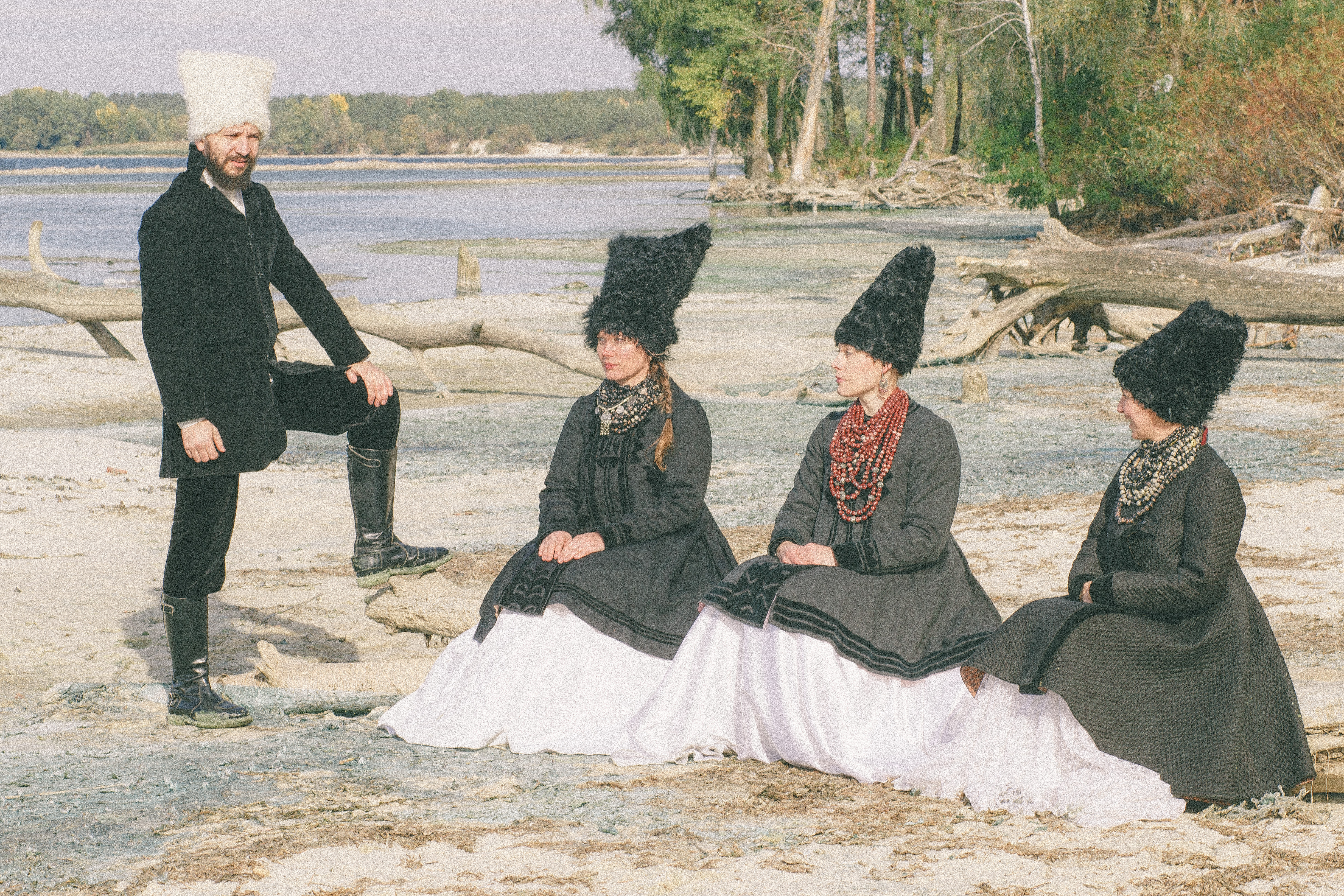Can Live Storytelling Be an Antidote to Xenophobia?

Bayu Aji performing his story in November 2017.
Image: Courtesy Kelly Nissl
Last November, Aristanto Bayu Aji stepped nervously onto the stage, wrung his hands, and averted his eyes from the nearly 300 spectators. His girlfriend had taken him to the Moth, Back Fence PDX, and several other local live storytelling events. Now, at Portland Story Theater, he began: “Life is like a movie. There’s story. There’s plot. There’s character. A couple of years ago, I was working on a sidewalk of downtown Portland fixing a parking meter when I suddenly heard the voice of a woman behind me. She said, ‘Go back to Mexico, you piece of shit!’”
The audience gasped and chuckled, fueling his confidence. “After those first two sentences, I didn’t even feel that I was on stage,” Bayu Aji admitted later. “I was just telling stories to friends.”
Most Americans assume Bayu Aji is from Mexico, but he was born in Indonesia, where he worked as a software project manager, built his own house, and fell in love with an American woman living abroad. Life was good, but shortly after they married, she convinced him that the only way to pay off her student loan debt was to move to the United States. He saw no other choice and reluctantly agreed. His homesickness deepened when a close friend died in 2006, followed by his father in 2010. After his divorce in 2011, his ex-wife received full custody of their two sons, for whom Bayu Aji decided to stay in the United States.
“Most people think people come here always to pursue happiness or the American dream,” says Bayu Aji. And some do, as reflected in several stories he heard last April, when he attended Portland Story Theater’s first Urban Tellers event focused completely on immigrants and refugees. “I wanted to bring another story. Not everybody escapes something terrible and finds something way better here in the United States.”
After the event, Bayu Aji introduced himself to Lawrence Howard and Lynne Duddy, cofounders of Portland Story Theater. They registered him for their Art of Personal Narrative Workshop, culminating in a 10-minute live performance, and waived the usual $250 fee, as they do for all participants in their immigrant and refugee editions, thanks to an Oregon Cultural Trust grant.
For five weeks, Bayu Aji and his five classmates met Tuesday evenings for three-and-a-half hours with Howard and Duddy. The pair explained the storytelling process, helped each participant develop key points, supplied feedback, and suggested methods to overcome stage fright. This vigorous practice helped Bayu Aji during the live event. “I was really nervous up to about my first two sentences, and then after that, it somehow flowed almost naturally, like during the workshop.”
Surprisingly, in Urban Tellers' decade-long history, not one participant has chickened out at the last minute. Duddy explains: “We screen people and help them understand that the performance is a requirement and that there’s none of this, ‘Oh I can’t perform.’”
It also takes courage to self-identify as an immigrant or refugee in today’s political climate. Anti-immigrant rhetoric was why, during Trump's presidential campaign, Duddy and Howard began writing grant proposals to support stories from immigrants and refugees. “We realized there was a real problem developing, so we wanted to find a way to bring people together and build understanding and compassion for one another,” Duddy says. “We believe that personal stories break down barriers and really reveal the commonality of our human experience. The whole mission of Portland Story Theater is to really help shape the narrative of our community one story at a time.”
Friday, April 6 will be the third evening of stories exclusively from immigrants and refugees, with six new participants from places as far flung as Beijing, Guatemala, and a refugee camp in Kenya.
Bayu Aji originally thought he’d tell his story and that would be it, but during his performance in November last year, he felt an unexpected emotional and empathetic exchange. “When they laughed during my funny parts, I was happy because I could make people laugh,” Bayu Aji recalls. “During the sad moments, I could also feel their compassion and warmth.”
By the end, Bayu Aji felt as though he was one with the audience. People thanked him afterward. Some said he’d opened their eyes, and others related their own divorce or homesickness. “The sum of all gave me a group feeling,” Bayu Aji remembers. “I don’t feel like a stranger. I’m welcomed here.”
Urban Tellers: Immigrants and Refugees
8 p.m. Fri, Apr 6, The Old Church, $15–18




